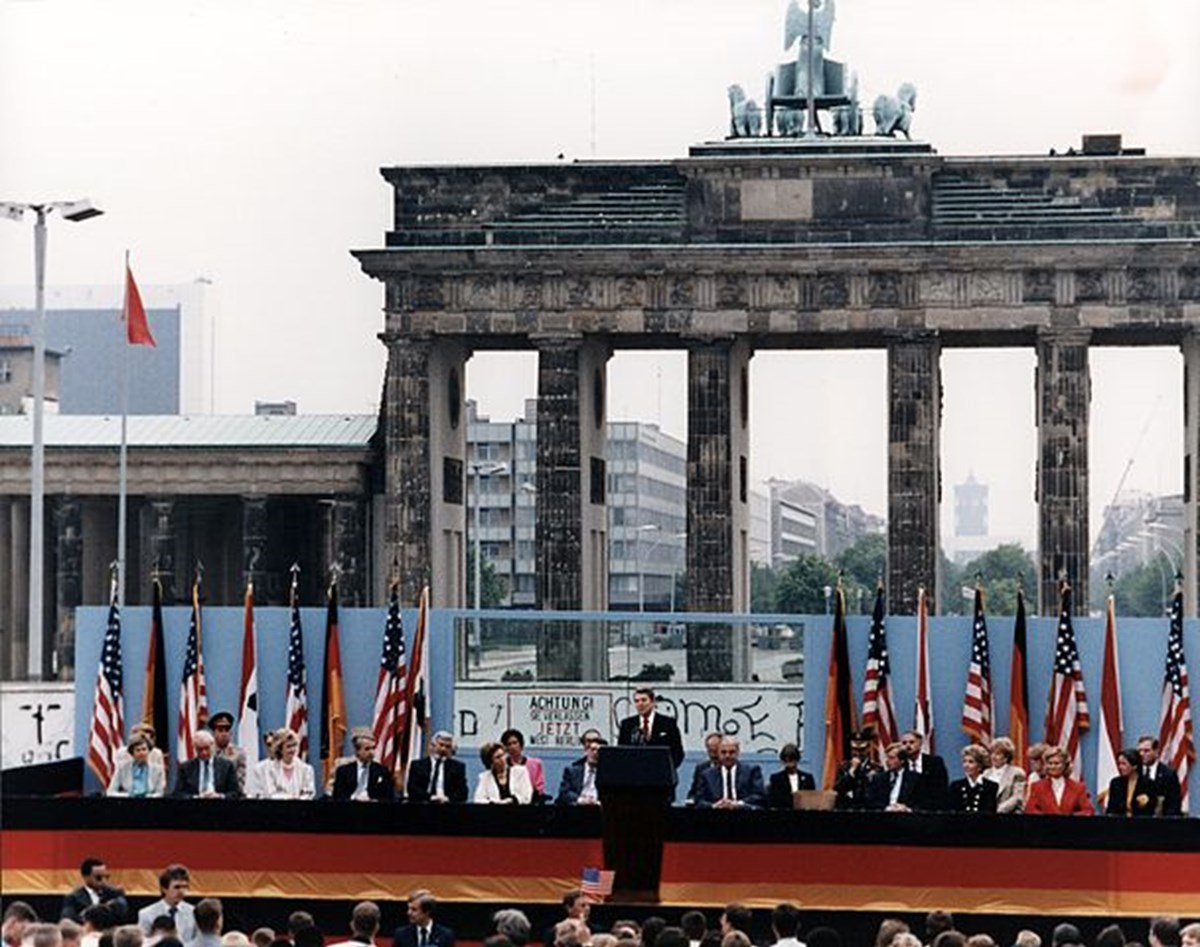When in 1987 Ronald Reagan urged Mikhail Gorbachev to “tear down this wall!”, millions of Berliners and many more worldwide rejoiced. However, those of us on the eastern side of the Iron Curtain were told that Reagan just delivered an “openly provocative, war-mongering speech.” Regardless, a couple years later, the wall was physically destroyed by millions of hammers, chisels, and bare hands. The Cold War soon ended, and the current era began.
While the fall of the Berlin Wall is rightfully celebrated, its history is very relevant today.
When the victorious Allies divided up Germany and Berlin, there were no walls. Even though Berlin sat in the Soviet part of Germany and could be closed off from the rest of Germany (as happened during the 1948 Berlin Airlift, where the Americans brought everything, from milk to coal, by airplane), Berliners themselves could cross from one sector to another quite easily. Some lived in the Soviet sector, but worked in the American one, and vice versa.
Which means that even though the people of the Soviet Union and Eastern Europe were incarcerated in communism with no chance to escape or even see the Western World, the Berliners could. They saw communist and capitalist systems through their own eyes, rather than through the lens of government propaganda.
What did those who could see do? They moved from East to West. Hundreds of thousands of Berliners packed up and quietly moved to the freedom that West Berlin offered. To combat that, the Soviets did the only thing they were good at: build barbed wire fences. But that was relatively easily bypassed; the border guards could be easily tricked. East Berliners claimed they were going to visit their relatives in West Berlin and never came back.
Let us pause the narrative and point out the first lesson here. When given a choice, people, who know what a lack of freedom and communism are, will always choose freedom. Around 13 million people escaped via Berlin to the West from 1950 to 1990, making it the best-run long-term empirical study of which system – communism or capitalism – is better. The left can wax about the evils of capitalism, but people from capitalist countries did not try to escape into communist ones.
Communists saw all that and started building a more robust wall, with concrete barriers, guard towers and kill zones. The all too familiar concrete monstrosity that President Reagan gave his speech at started to appear in 1961. True to style, Eastern German leaders were telling the population that the government does not want to build any walls, even as construction was underway. Some people understood what was happening and escaped before the border was sealed.
This brings another insight: small restrictions of freedom can lead only to bigger restrictions. Whether they are totalitarian regimes bent on world domination or democratically elected politicians who think they are superior to the people who elected them, governments are keen to take freedoms away and reluctant to give them back. Many people naively believe that governments would stop if only we give up a little more of our freedoms. It is like giving home invaders your gun and thinking that now that they have your gun, they will go away.
Going back to President Reagan and his speech, many in his closest circles advised against its combative tone, called the speech extreme and unpresidential. Many thought that telling the truth would anger the Soviets and Gorbachev. Many thought that the only way forward was not angering the Soviets. Reagan disagreed and delivered the version of the speech he thought was right, and history is definitely of his side.
Here comes the final insight: the power of the right words. I am not talking about spin, pandering to the masses, or spitting out whatever is popular (or “trending”). Saying the right things (the truth), and saying them in the right way, can move mountains. Soviet propaganda was very good at saying things right, but few believed it because it was not the truth. The TV set in our apartment could go on all day about how the Soviet Union is the best country in the world, and that the US is about to collapse, but it only made my grandfather cringe. When he tuned his radio to the “Free Europe” station, his expression was completely different.
Even in today’s world of feelings, “microaggressions” and “safe spaces,” truth and reason are superior. It is not that people are not listening to the truth anymore (although some perhaps never have); it is that leaders and people who should know better are afraid to speak truth and reason. Had Reagan spoken in platitudes, talked about respecting the rights of other cultures to build walls, that speech would have not contributed to the wall’s fall a couple of years later.
Speaking the right things and speaking them in the right way: this is our mission, responsibility, and key to success in defending freedom. It was right on June 12th, 1987, it is still right on June 12th 2020.

